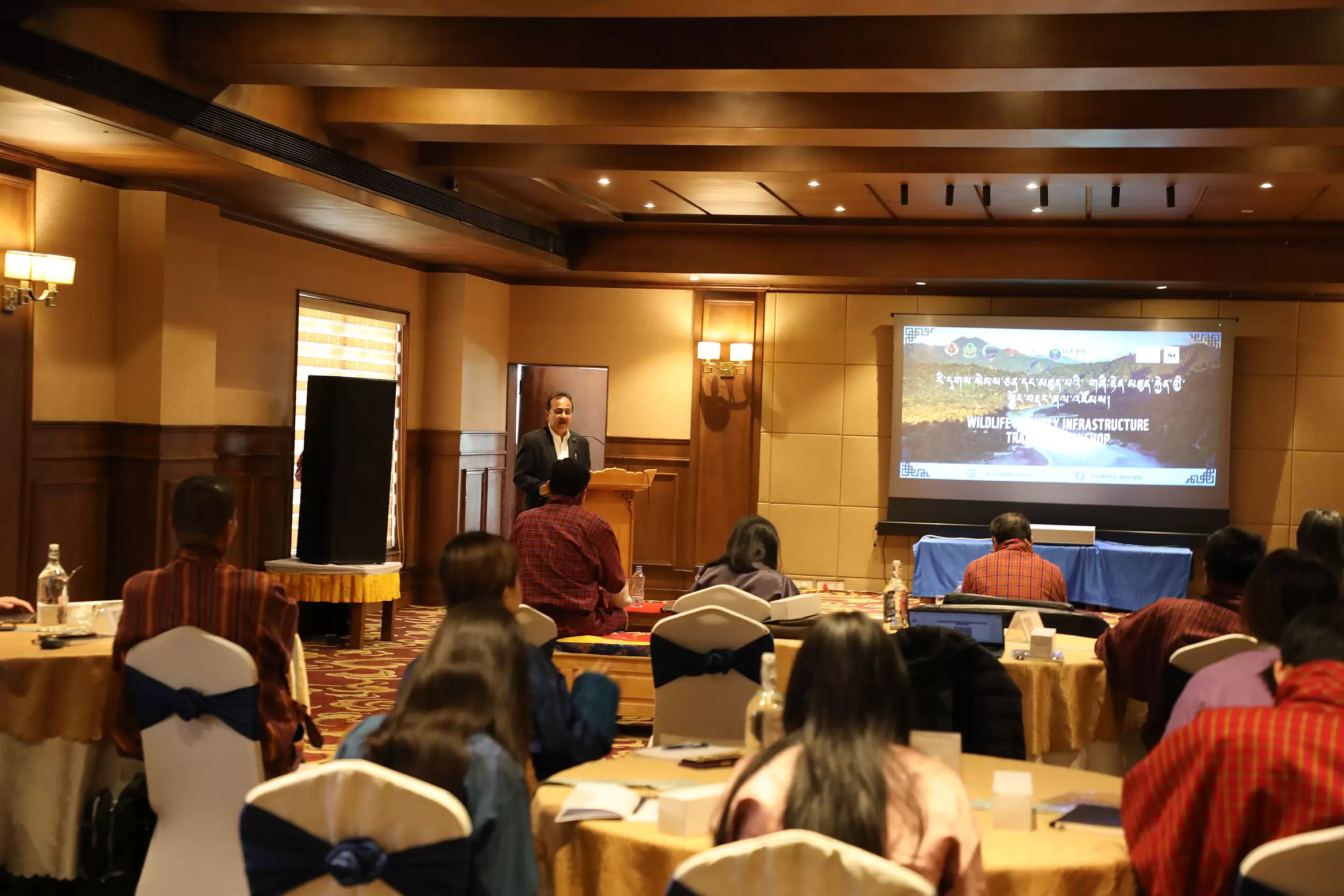The WWF is run at a local level by the following offices...
- WWF Global
- Adria
- Argentina
- Armenia
- AsiaPacific
- Australia
- Austria
- Azerbaijan
- Belgium
- Bhutan
- Bolivia
- Borneo
- Brazil
- Bulgaria
- Cambodia
- Cameroon
- Canada
- Caucasus
- Central African Republic
- Central America
- Central Asia
- Chile
- China
- Colombia
- Croatia
- Democratic Republic of the Congo
- Denmark
- Ecuador
- European Policy Office
- Finland
Our News
Wildlife-friendly infrastructure training workshop underway in Thimphu
The Department of Forests and Park Services, in partnership with World Wildlife Fund (WWF) and the International Union for Conservation of Nature (IUCN) Asian Elephant Transport Working Group (AsETWG), is organizing a three-day workshop on wildlife-friendly infrastructure development from 25-27 March 2025 in Thimphu. This event brings together key stakeholders to explore sustainable infrastructure solutions that balance development and ecological conservation. Officials from over 35 key stakeholders from the government agencies including the representatives from DoFPS, Department of Surface Transport, officials from local NGOs, and funding organizations are attending the workshop in Thimphu.
Addressing Infrastructure and Conservation Challenges
While linear infrastructure such as roads and highways play a crucial role in socioeconomic progress of a country by enhancing connectivity, trade, and access to essential services, they also pose risks to wildlife and ecosystems. Poorly planned infrastructure can result in habitat fragmentation, increased wildlife mortality from collisions, and escalating human-wildlife conflicts.
Large-ranging wildlife species are particularly vulnerable to linear infrastructure development. Besides causing animal mortality due to collisions, movement barriers created by linear infrastructure especially roads and railways contribute to rising human-wildlife conflicts in Bhutan. Similar challenges are observed across the Asian countries such as Bangladesh, India, Nepal, and Sri Lanka. Bhutan’s efforts to incorporate mitigation measures, such as construction of highway underpasses in known wildlife corridors in southern Bhutan, provide a strong foundation for future initiatives.
Objectives of the Workshop
This workshop aims to:
- Enhance understanding of wildlife-friendly infrastructure design and implementation.
- Strengthen technical capacity among conservation and development agencies.
- Work towards development of strategies for integrating wildlife-friendly designs into Bhutan’s infrastructure projects.
- Foster collaboration among key stakeholders to ensure sustainable infrastructure development.
- The workshop will feature presentations from national and international experts, including insights from the Handbook to Mitigate the Impacts of Roads and Railways on Asian Elephants.
Key sessions include: - Overview of Linear Infrastructure and the Environment – Discussions on global and national environmental policies, road ecology, and wildlife movement challenges.
- Understanding the Effective Mitigation of Infrastructure for Elephants – Case studies and research on elephant-friendly infrastructure solutions.
- Policy and Planning for Wildlife-Friendly Infrastructure – Analysis of Bhutan’s regulatory framework and international best practices.
- Monitoring and Evaluation – Importance of data collection, effectiveness tracking, and biodiversity assessments.
- Managing Human-Wildlife Conflict – Strategies to mitigate conflicts through infrastructure planning.
- Economic Considerations – Cost-benefit analysis of wildlife-friendly infrastructure and funding opportunities.
- Way Forward – Stakeholder collaboration to integrate wildlife-sensitive infrastructure into national planning.
The workshop will engage over 35 key stakeholders from government agencies, NGOs, and funding organizations.
The training workshop is supported by IUCN AsETWG and WWF. The event will serve as a critical platform for advancing Bhutan’s commitment to sustainable and wildlife-friendly infrastructure development.

© Nima / WWF-Bhutan
Day 1 Group photo

© Nima / WWF-Bhutan
Workshop

© Nima / WWF-Bhutan
Day 1

© Nima / WWF-Bhutan
Day 1